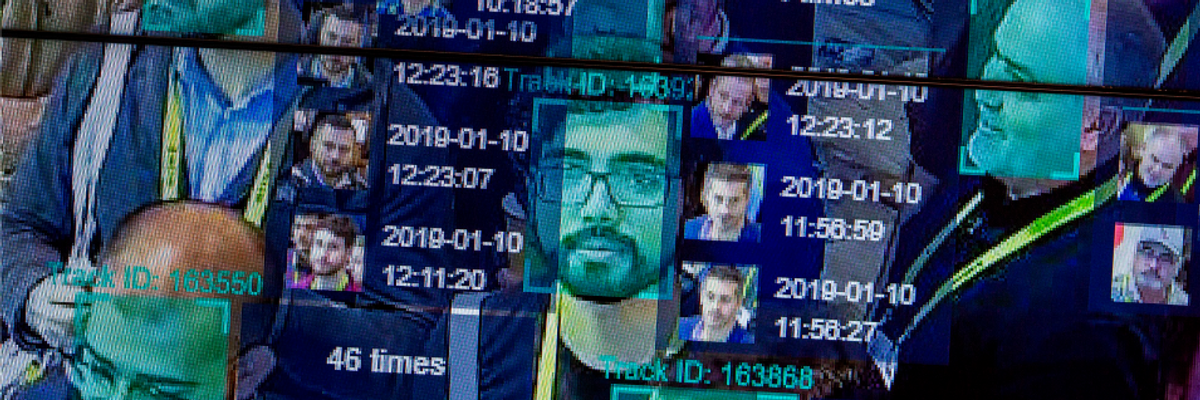A diverse coalition of advocacy groups representing more than 15 million people launched a grassroots pressure campaign Thursday calling on local, state, and federal lawmakers to completely ban law enforcement use of facial recognition technology, which the organizations warn is "spreading like an epidemic" and poses a dire threat to fundamental privacy rights.
"Facial recognition is one of the most authoritarian and invasive forms of surveillance ever created," said Evan Greer, deputy director of Fight for the Future (FFTF), which is leading the campaign. "No amount of regulation can fix the dangers inherent in this form of Big Brother automaton. We need to ban this technology outright, treat it like biological or nuclear weapons, and prevent it from proliferating before it's too late."
"We know this technology will expand the reach of the surveillance state while also causing more harm to already vulnerable communities."
--Myaisha Hayes, MediaJustice
According to FFTF, opposition to facial recognition technology is "reaching a boiling point" as over 30 major organizations have backed the new campaign, including United We Dream, Greenpeace USA, RootsAction, and Color of Change.
The organizations plan to flood lawmakers with letters and calls demanding nothing less than a total ban on law enforcement use of facial recognition technology, which is increasingly being put to use by government agencies at major U.S. airports and elsewhere across the nation.
Myaisha Hayes, national organizer on criminal justice and tech at MediaJustice, another group backing the campaign, said in a statement that facial recognition technology disproportionately violates the rights of minority communities.
"Given the history of racist and discriminatory policing, coupled with the horrific deportations we are currently witnessing under this administration," said Hayes, "we know this technology will expand the reach of the surveillance state while also causing more harm to already vulnerable communities."
Echoing Hayes, United We Dream strategy director Adrian Reyna warned use of facial recognition technology by police and border agents puts immigrants in harm's way.
"The Trump administration is carrying out the mass deportation and detention of immigrants," said Reyna. "We have already seen the impact of police and the deportation force unleashed--they are abducting people in their workplaces, in their homes, and keeping entire families in detention indefinitely. Equipping them with facial recognition technology will certainly lead to more raids and further stoke fear among Black and brown communities.
"The use of this equipment is immoral and destructive," Reyna added. "It must be banned nationwide."
The grassroots campaign comes as facial recognition is garnering growing attention at the national level, with Congress holding hearings on the topic and considering bipartisan legislation to limit use of the technology.
Last month, as Common Dreams reported, Sen. Bernie Sanders (I-Vt.) became the first 2020 Democratic presidential candidate to call for a ban on law enforcement use of facial recognition technology as part of his plan to overhaul the U.S. criminal justice system.
"The rapid spread of facial recognition surveillance is one of the most urgent threats to our basic freedom and human rights today," Greer said last month. "Every single 2020 candidate should be calling for a ban on this invasive, biased, and dangerous technology."




